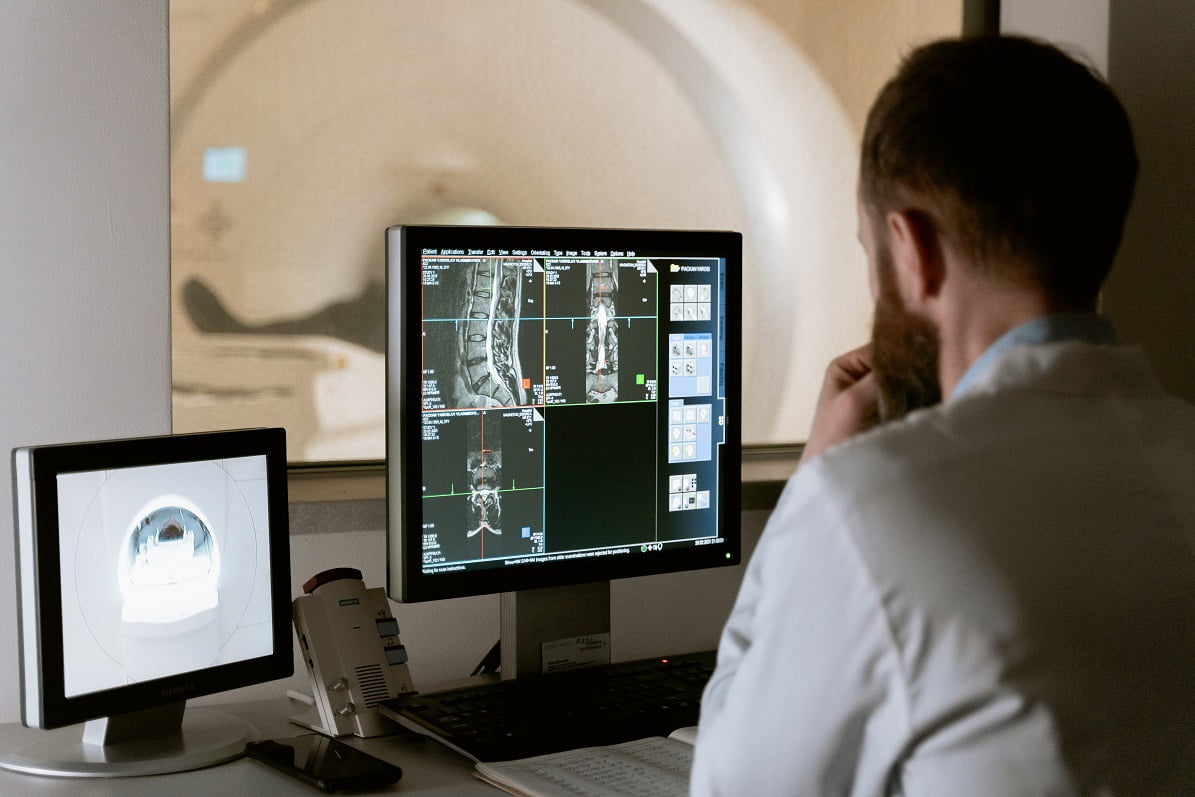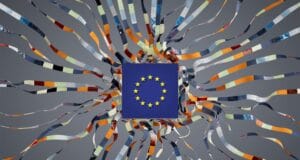In our ‘data sharing in practice’ series, we talk to professionals who are actively involved in data sharing. What is their perception of the value of sharing data, what initiatives did they start or participate in to realise value creation, and what are the challenges they have faced along the way?
The Medical Informatics department at Amsterdam UMC provides university education and research in the field of medical informatics. Ronald Cornet is associate professor and principal investigator. We spoke with him about the social value of sharing patient data and its challenges.
In his role as principal investigator, Ronald leads the ‘Reusable Health Data’ research group. “We focus on making standardised source data as available as possible,” says Ronald. “Initially, the focus is on the primary process. Think of clinical decision support (CDS) to improve health and healthcare delivery, but also making data available to patients in a clear, understandable way. In addition, we focus on the secondary process: making data available and reusable for research purposes. It is our mission to use today’s observational care data to improve tomorrow’s care.”
There is a desire to share data, but hospital systems are not equipped
Although attention for data sharing in healthcare is increasing, according to Ronald, it is still incredibly complex. “Of course, there are situations where hospitals need to share data. Think of obligations to insurers or supplying data to a body like CBS for statistical purposes. But sharing data for the primary and secondary processes described above is still in development and incredibly complex. The desire is there, but the biggest challenge is how source registration is currently organised. Hospital information systems are not well equipped to share data. We are dealing with proprietary data, which implies that most data belongs to the supplier of these hospital information systems. This makes us dependent on them if we want to make data available to third parties. Furthermore, the implementation of these systems usually involves a lot of customisation, which means that data captured in the systems differs and is also poorly shareable from a technical point of view.”
The challenge of getting patients’ consent to use their data
There is another challenge: the privacy sensitivity of the patient data and obtaining the patient’s consent to process and make data available for both the primary and secondary process. According to Ronald, that is not well arranged. “I am convinced that the damage to public health caused by not sharing patient data is many times greater than the damage of sharing that data. And yet it happens far too little. In fact, patients often expect that their data has already been shared between health institutions. So when a hospital has not yet received important information from their doctor, they get frustrated. Doctors then get understandable questions such as ‘How is it possible that you didn’t know this yet?’. I find this worrying.”
Ronald believes that patients or their family should be able to easily give consent to share their data. According to Ronald, one environment is needed that enables patients to control their own data and to determine with whom their data can be shared. “Consent always requires delineation: what do you ask a patient permission for? Although as a researcher I would find the concept of ‘blanket consent’ (consent that is not limited to a specific subject) ideal, laws and regulations regarding proportionality prescribe that I may never ask for more data than is strictly necessary to answer my research question. The problem is that you don’t always know in advance exactly what data you need to answer that. That is why we must work towards a single environment in which patient data is collected and in which patients can participate by making their data available for all kinds of research.” Transparency is important, says Ronald. “Patients must be able to follow which studies are in progress and what their data is used for exactly. If there are patients who do not want their data to be shared, that is of course their right. That is why it is all the more important that we properly explain to patients how sharing data can contribute to better care.”
Creating one environment for patients to participate in data sharing
Amsterdam UMC is also involved in regional and national initiatives to create the infrastructure for such a patient environment. Ronald: “Together with a number of partners, we initiated the Health Data Infrastructure within the Amsterdam Economic Board to investigate how we can more easily access healthcare data for research. We are also involved in CumuluZ, an initiative of various university medical centres that works towards a new target architecture to share and store Dutch healthcare data. With several regional hubs, Amsterdam being one of them, we are thinking about how we can create an environment where a patient’s data can be made accessible. The idea is that patients have the opportunity to determine for themselves with whom their data is shared based on a central online consent facility. Here, patients can indicate whether their data may only be used for the provision of care, or whether it may also be used (anonymised) for scientific medical research.”
Ronald expects that the government can be a driving force to boost data exchange in healthcare. “I am pleased that the Electronic Data Exchange in Healthcare Act (Wegiz) has been passed and I applaud the way in which the Ministry of Health, Welfare and Sport is now trying to implement this. Track 2 in particular, which obliges healthcare providers to exchange structured and standardised data, increases the pressure on suppliers to adapt systems accordingly and on users to work according to standards, so that data can be made available more easily. Of course, there will still be plenty of discussions about how the data exchange should be specified, but this is a good starting point. Ultimately, there must be a reference architecture or a reference data model that all healthcare providers must comply with.”
Ronald sees an important task for the Centre of Excellence for Data Sharing and Cloud (CoE-DSC) to align data initiatives and to safeguard knowledge and expertise. “The CoE-DSC creates a lot of awareness for the subject of data sharing, but as far as I’m concerned it should also take responsibility in the field of governance. It is important that the knowledge and expertise of various sectoral data sharing initiatives is combined, so that we can learn from each other and not reinvent the wheel.”




